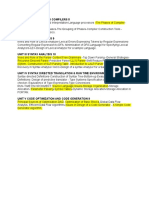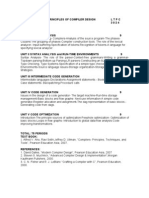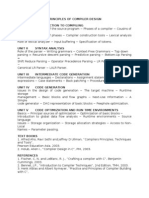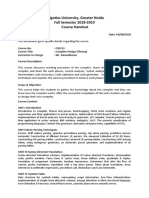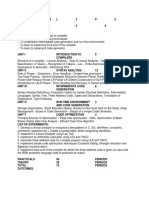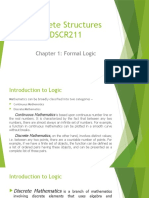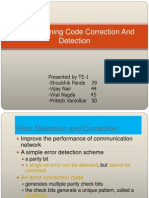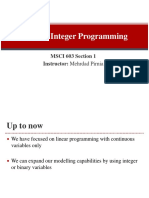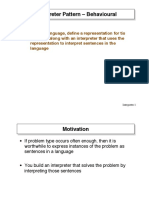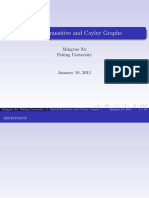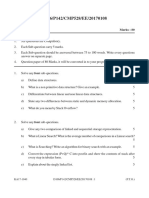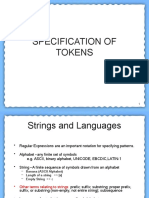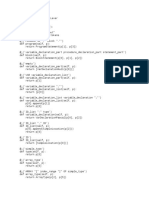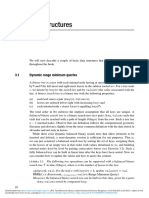0% found this document useful (0 votes)
959 views2 pagesCompiler Design for CS Students
This document outlines the course structure for Principles of Compiler Design. It is divided into 5 units that cover various phases of compiler design like lexical analysis, syntax analysis, syntax-directed translation, run-time environment and error handling. The total credits for the course are 60. Some key topics include lexical analysis using finite automata, context-free grammars, top-down and bottom-up parsing, syntax-directed definitions, code generation and optimization. The course also includes a lab component to provide hands-on experience with tools like LEX and YACC.
Uploaded by
menahasenthilCopyright
© Attribution Non-Commercial (BY-NC)
We take content rights seriously. If you suspect this is your content, claim it here.
Available Formats
Download as DOC, PDF, TXT or read online on Scribd
0% found this document useful (0 votes)
959 views2 pagesCompiler Design for CS Students
This document outlines the course structure for Principles of Compiler Design. It is divided into 5 units that cover various phases of compiler design like lexical analysis, syntax analysis, syntax-directed translation, run-time environment and error handling. The total credits for the course are 60. Some key topics include lexical analysis using finite automata, context-free grammars, top-down and bottom-up parsing, syntax-directed definitions, code generation and optimization. The course also includes a lab component to provide hands-on experience with tools like LEX and YACC.
Uploaded by
menahasenthilCopyright
© Attribution Non-Commercial (BY-NC)
We take content rights seriously. If you suspect this is your content, claim it here.
Available Formats
Download as DOC, PDF, TXT or read online on Scribd
/ 2


